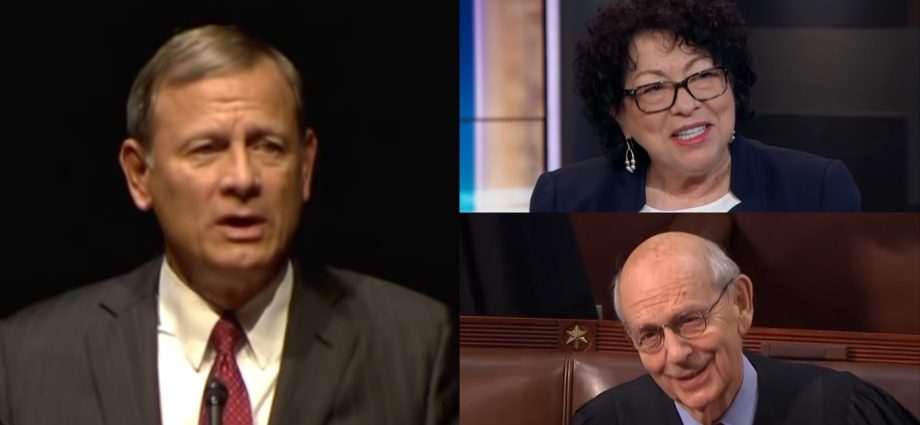This morning, the U.S. Supreme Court handed down five decisions, one in the case Carson vs. Makin.
SCOTUSblog shared the ruling on Twitter:
“The Supreme Court STRIKES DOWN a Maine education program that provides tuition assistance for students to attend some private schools but excludes schools that provide religious instruction. SCOTUS says the exclusion of religious schools is unconstitutional.”
“Here’s the opinion from John Roberts in Carson v. Makin: https://supremecourt.gov/opinions/21pdf/20-1088_dbfi.pdf…. The vote is 6-3 along ideological lines, with Breyer, Sotomayor, and Kagan in dissent.”
Here’s the opinion from John Roberts in Carson v. Makin: https://t.co/guXt0bJwzJ. The vote is 6-3 along ideological lines, with Breyer, Sotomayor, and Kagan in dissent.
— SCOTUSblog (@SCOTUSblog) June 21, 2022
This was the only decision today that went straight down ideological lines. Chief Justice John Roberts penned the opinion for the court and Justices Breyer and Sotomayor both issued dissents.
The program offered in Maine provides tuition assistance for high school students without a local public school to attend private schools, as long as the funding is not used for religious teaching, the “nonsectarian” requirement was added to the program in 1981.
Roberts wrote, “The question presented is whether this restriction violates the Free Exercise Clause of the First Amendment…”
“Maine’s ‘nonsectarian’ requirement for its otherwise generally available tuition assistance payments violates the Free Exercise Clause of the First Amendment. Regardless of how the benefit and restriction are described, the program operates to identify and exclude otherwise eligible schools on the basis of their religious exercise.”
The decision concludes if Maine provides the benefit of tuition assistance it cannot condition the benefits in a way that “effectively penalizes the free exercise of religion.”
Justice Breyer dissented and claims that the opinion of the court goes against the First Amendment.
Breyer wrote, “This is a situation ripe for conflict, as it forces Maine into the position of evaluating the adequacy or appropriateness of the schools’ religiously inspired curriculum.”
“By invalidating the nonsectarian requirement, the majority today subjects the State, the schools, and the people of Maine to social conflict of a kind that they, and the Religion Clauses, sought to prevent.”
Justice Sotomayor expressed in her dissent her, “growing concern for where this Court will lead us next”
Ideologically the court is split on how to interpret the First Amendment, this case highlights that fact.
- Sources: Tim Pool Sold Operation to The Daily Wire - December 17, 2024
- Jack Smith BTFO After Judge Cannon Denies Gag Order Request on Donald Trump - May 28, 2024
- Nancy Pelosi Refuses to Answer Directly the Question of Whether or Not Donald Trump is Still ‘Eligible’ to be President in Midst of State Ballot Fiascos - January 7, 2024

